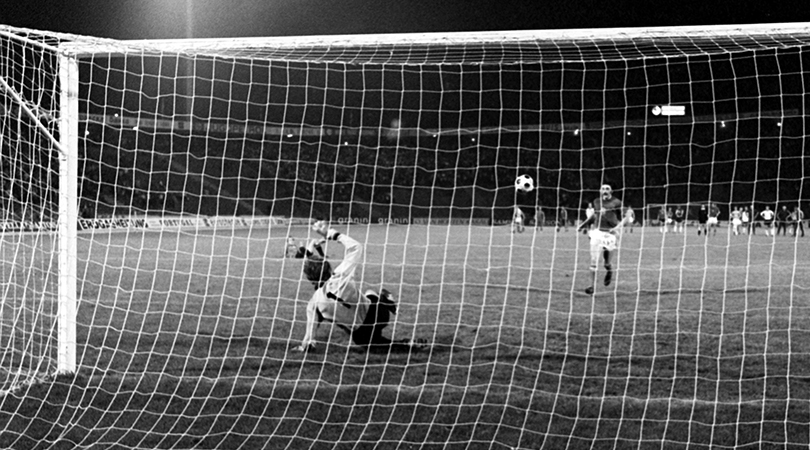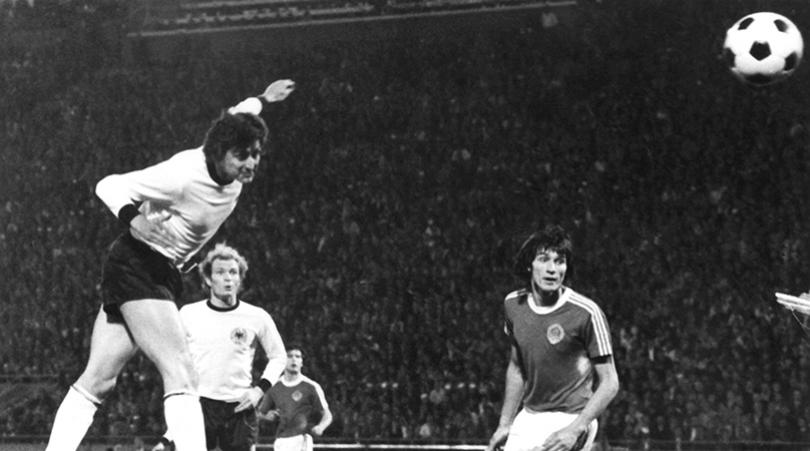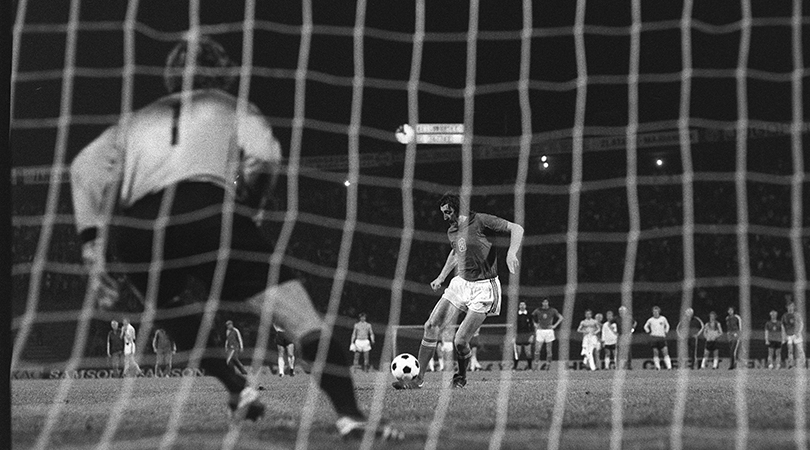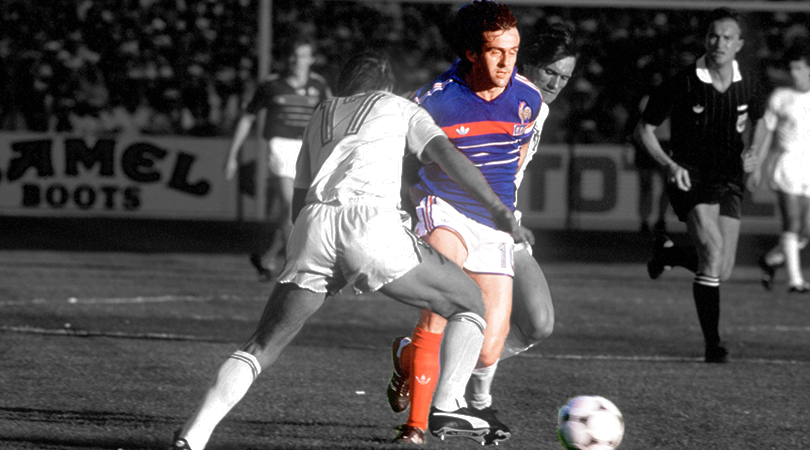On this day in the Euros, June 20: The Germans lose on penalties
It was the first-ever penalty shootout - and the Germans lost. It was also a belting final, too...

1976 was a funny old summer. Britain roasted in the most severe heatwave on record but lost the Cod War (no, not the Cold War) to Iceland. Americans celebrated the bicentennial but feared the Son of Sam serial killer. And the Germans lost a penalty shootout.
Euro 76 was the last in the four-team format, with no free rides for hosts or holders. That meant that Euro 72 winners (and world champions) West Germany had to qualify like everybody else: by winning a four-team group then a two-leg play-off.
They did so – of course they did, the Germans have qualified for every tournament since 1970 – and were joined by Yugoslavia (subsequently chosen as hosts), debutants and World Cup runners-up Netherlands (who hammered neighbours Belgium 7-1 in the play-offs), and Czechoslovakia.
The central European country had been World Cup finalists in 1934 and 1962 and took part in the first Euros in 1960, but had had a bad 14 years: failing with four of their five attempts to qualify, and losing all three group games at Mexico 70.
But Vaclav Jezek’s men were unbeaten in 20 games and dispatched the Dutch in a Zagreb downpour – eventually. Sweeper Anton Ondrus nodded in Antonin Panenka’s free-kick then volleyed a spectacular second – sadly for him, into his own goal. A red card for Johan Neeskens weakened the Oranje and in extra-time goals from Zdenek Nehoda and Frantisek Vesely sent Czechoslovakia to the final.
June 20, 1976

There they would meet West Germany, who also required extra-time having been 2-0 down to Yugoslavia until uncapped Dieter Muller rose from the bench to bag a hat-trick on his debut. Understandably, Muller made the starting line-up for the final at Belgrade’s Marakana, thankfully played in slightly more clement conditions. And it was a belting final.
Get FourFourTwo Newsletter
The best features, fun and footballing quizzes, straight to your inbox every week.
The goals started in the eighth minute, when the normally reliable Berti Vogts was sloppy in his own area and dispossessed by Marian Masny, who fed Koloman Gogh for a shot that Sepp Maier did well to parry but only as far as Nehoda, whose fizzed pull-back evaded skipper Ondrus but was dispatched by Jan Svehilk.
Things got better yet for Jezek’s team in the 25th minute. Beefy centre-back Hans-Georg Schwarzenbeck, the brawn to Franz Beckenbauer’s brain, gave away a free-kick down by the corner-flag; der Kaiser nodded away Masny’s set-piece but only to Karel Dobias, 20 yards out, who somehow threaded a daisy-cutter into Maier’s bottom corner. The Germans were 2-0 down – again.
And again they looked to Dieter Muller. Coming off the back of scoring 14 goals in 19 Bundesliga games for Cologne – not to mention that semi-final hat-trick – the 22-year-old was in superb form and supremely confident. Three minutes after Dobias doubled the lead, Muller halved it again with a volley from Rainer Bonhof’s cross, although skipper Ondrus might ask how the striker was unmarked seven yards out.
From there, with Beckenbauer frequently striding out of defence to make the extra man, West Germany piled on the pressure – only to be thwarted by a succession of saves from Ivo Viktor. However, the 32-year-old was finally beaten again in the 89th minute, when Bernd Holzenbein rose to nod in Bonhof’s corner.
We’ll take penalties
This time, the Germans couldn’t find a winner in the extra period, which gave the teams a choice. UEFA had made provisions for a replay to take place two days later – Welsh ref Clive Thomas, who had overseen the Czechoslovakia-Netherlands semi, was due to adjudicate – but the teams were given, and chose, the option of the first penalty shootout in a major international tournament.
Spot-kick shootouts had been used in European club football for six seasons, but this was something new. Czechoslovakia went first, Masny’s successful conversion levelled by Bonhof. Nehoda, Flohe, Ondrus, Hans Bongartz and Ladislav Jurkemik scored, but Uli Hoeness thrashed his effort way over the bar.
That left Czechoslovakia 4-3 up, meaning that their fifth penalty taker, Antonin Panenka, could win it by converting.

Panenka used to practice penalties after training, gambling a bar of chocolate or a glass of beer on the outcome. “I got the idea that if I delayed the kick and just lightly chipped it, a goalkeeper who dived to the corner of the goal could not jump back up into the air,” he explained later. “I started to gain weight, because I was winning the bets.”
He also won the European Championship for Czechoslovakia, floating the ball over the diving Sepp Maier with a flash of skill so shocking and groundbreaking it received the ultimate accolade of an eponym: two years after the Cruyff turn, the world learned about the Panenka penalty.

What happened next
Czechoslovakia failed to qualify for 1978 but came third at the expanded Euro 80, winning the Euros’ last-ever bronze-medal game via, you guessed it, a penalty shootout; Panenka scored again. He also bagged two spot-kicks at España 82 - the only goals his side scored there.
For those tournaments, coach Vecek had been superseded by Dr Jozef Venglos, whose poor 1990/91 season at Aston Villa created the received wisdom that foreign managers couldn’t thrive in England.
Euro 2016 guide • Euro 2016 news
Gary Parkinson is a freelance writer, editor, trainer, muso, singer, actor and coach. He spent 14 years at FourFourTwo as the Global Digital Editor and continues to regularly contribute to the magazine and website, including major features on Euro 96, Subbuteo, Robert Maxwell and the inside story of Liverpool's 1990 title win. He is also a Bolton Wanderers fan.
